|
Towards more inclusive, participatory, just and sustainable development |
| |
|
First of all, Arab Watch Coalition wishes that the year 2022 is off to a good start for you, hoping that all your efforts will be completed with optimism determination and success. |
| |
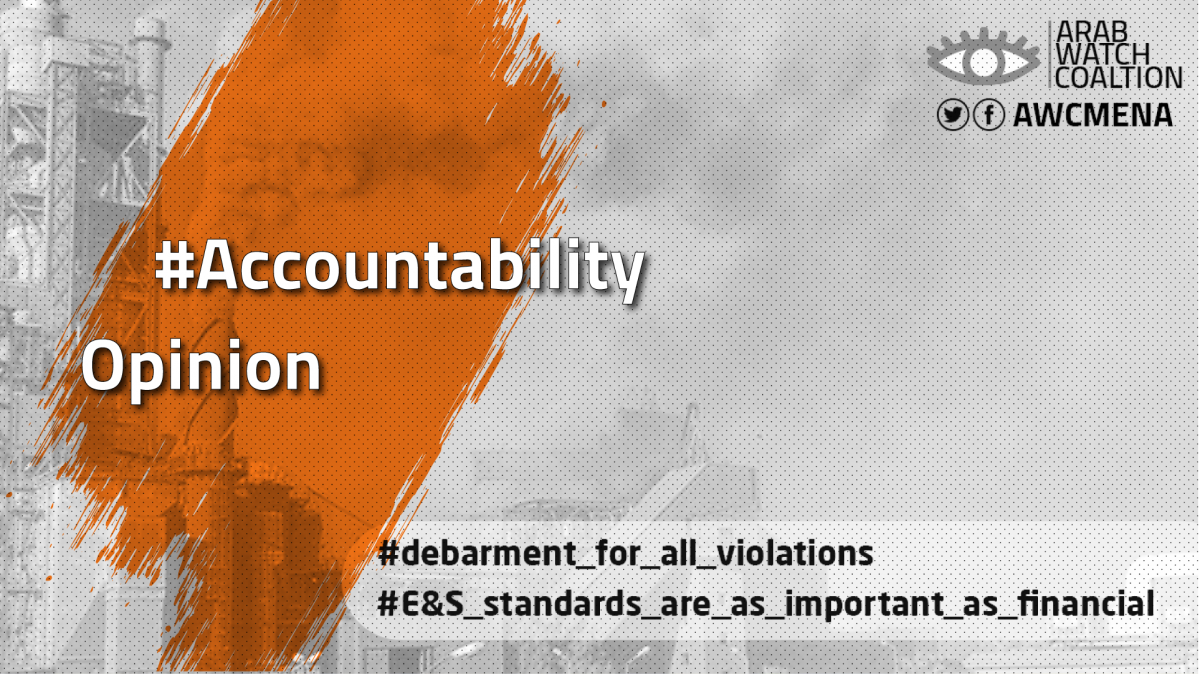 |
|
11 years: Everything that is wrong with the IFC’s Accountability System |
|
Despite its location in the heart of a residential area called Wadi El Qamar in Egypt, Titan Cement plant was funded by the IFC, subordinate to the World Bank. Since 2010, residents and workers have been suffering from health issues caused by and high emissions, cement dust and high noises.
After several failed attempts to negotiate with the company, a group of local community, workers at the plant, and civil society organizations filed a complaint in April 2015 with the CAO against Titan’s environmental performance, its non-compliance with the social standards on labor rights and conditions with regards to the IFC’s environmental and social sustainability policies.
Now that the IFC approved the investigation reports, what measure the institution plans for redress and really translate its policies into practice? |
|
|
| |
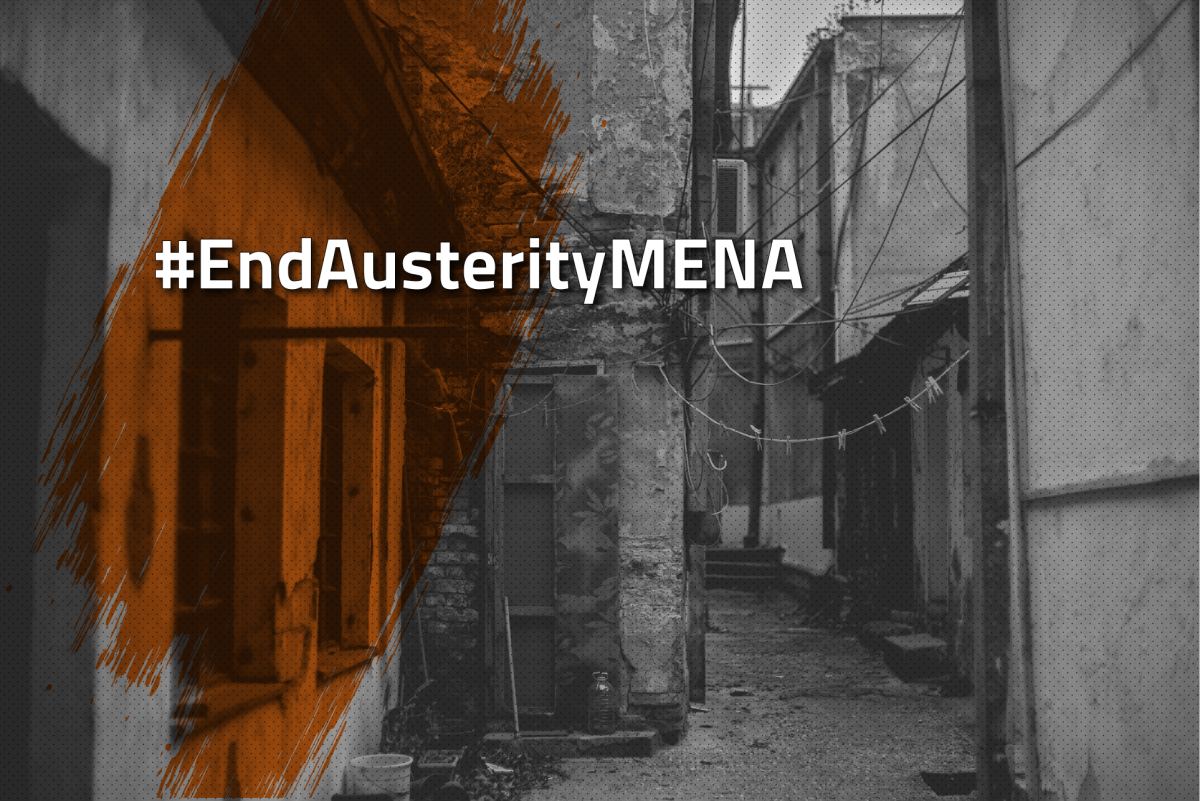 |
|
#EndAusterityMENA: the meeting Zero |
|
Austerity policies and measures have refashioned societies of the MENA region for a decade. These conditions have became critically substantive in the aftermath of the COVID-19 pandemic that brought severe economic and social panic in all countries of the region while people are suffocated under austere agendas. Among the #EndAusterity global campaign, Arab Watch Coalition held its first meeting (the Meeting ZERO) with 15 civil society organizations, including AWC members from the region in July 2021. The meeting’s outcomes will draw the skeleton of the upcoming campaign that AWC is preparing to launch against austere policies and measures in the MENA region. |
|
|
| |
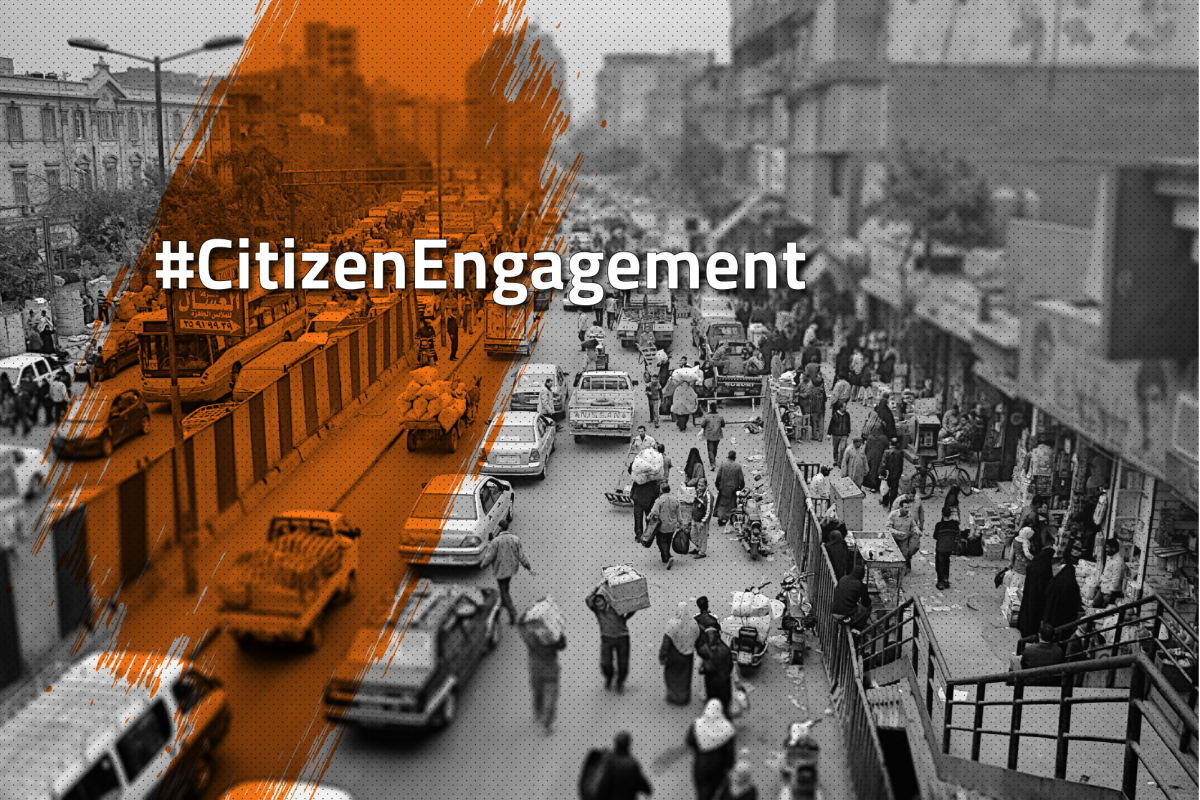 |
|
Unmet commitment to CSOs engagement at the AfDB |
|
The ongoing review of the Integrated Safeguards System (ISS) is a cornerstone of the of the African Development Bank (AfDB) to effectively engage with civil society and local communities that are at the center of the bank’s funded activities around African countries. Since June 2021, CSOs around Africa and international allies were following this process. Together, they addressed their concerns and recommendations to the AfDB regarding the ISS reviewing process, to prompt the bank’s consultative approach and enhance its Environmental and Social Safeguards.
Despite several calls from CSOs, the African Development Bank published a brief Public Announcement on the ISS review turning its back to CSOs calls. The announced plans demonstrate a lack of genuine desire for meaningful engagement with civil society. It provides external stakeholders with limited opportunities to share their input on the critical policies under review.
|
|
|
| |
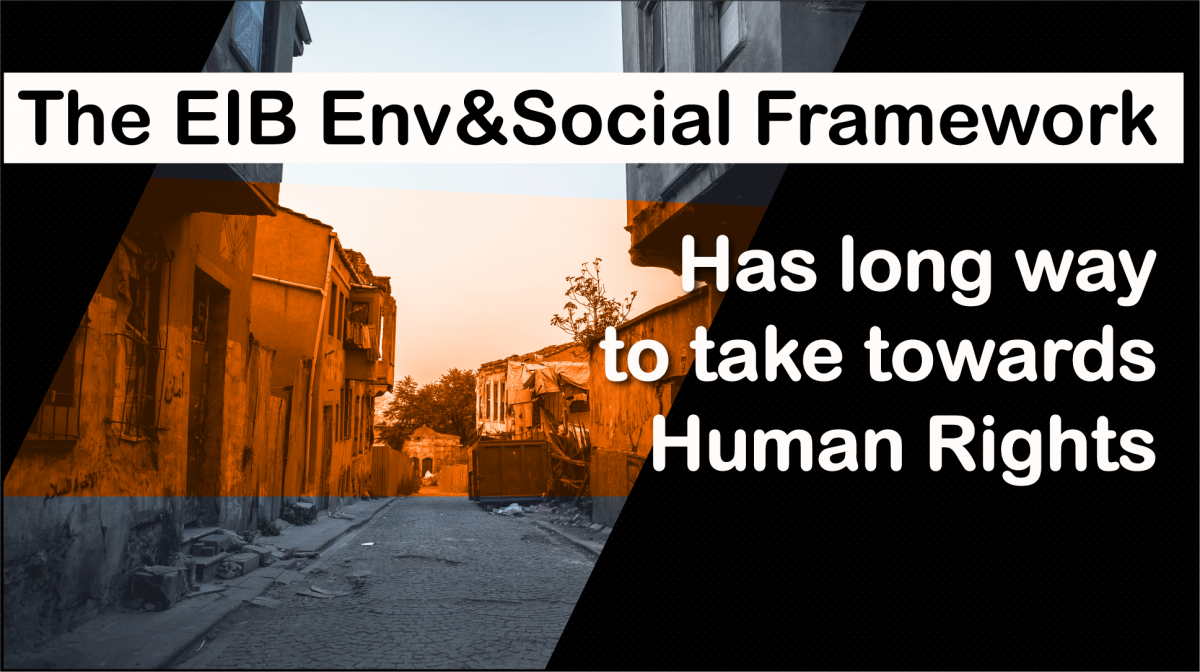 |
|
|
|
While many EIB countries of operations remain disturbed with the worse Human Rights records, its proposed Environmental and Social Sustainability Framework (ESSF) still lacks substantial progress to implement factual commitments to Human Rights. Arab Watch Coalition with several NGOs around the world highlighted the poor Human Rights’ considerations embedded in the proposed ESSF and calling for concrete actions to ensure that the EIB will operate as a responsible lender in and outside the EU.
|
|
|
| |
|
Ambivalence in the EIB consultative approach |
|
As the European Investment Bank (EIB) was revising its Environmental and Social Sustainability Framework (ESSF), the bank launched online public consultation process in June 2021, which seemed to be a very auspicious step forward. However, it was received with great disappointment by civil society organizations. The process excluded several relevant parties from meaningful participation. In addition to the short period allocated, the language inaccessibility was sharp during this prominent process.
|
|
|
| |
|
CSOs continue calling for holistic reform of the EIB |
|
Ahead of the European Investment Bank (EIB)’s Board of Governors meeting on June 18, 2021, 24 civil society organizations called the European Finance Ministers to holistically reform the EIB’s.
The EU Finance Ministers represent 27 of the EIB’s shareholders and its Board of Governors. Together they constitute an important role in decision-making regarding the bank’s policies and its core strategies. The Board of Governors’ annual meeting was key occasion to address crucial concerns on the EU public finance arm, the EIB.
|
|
|
| |
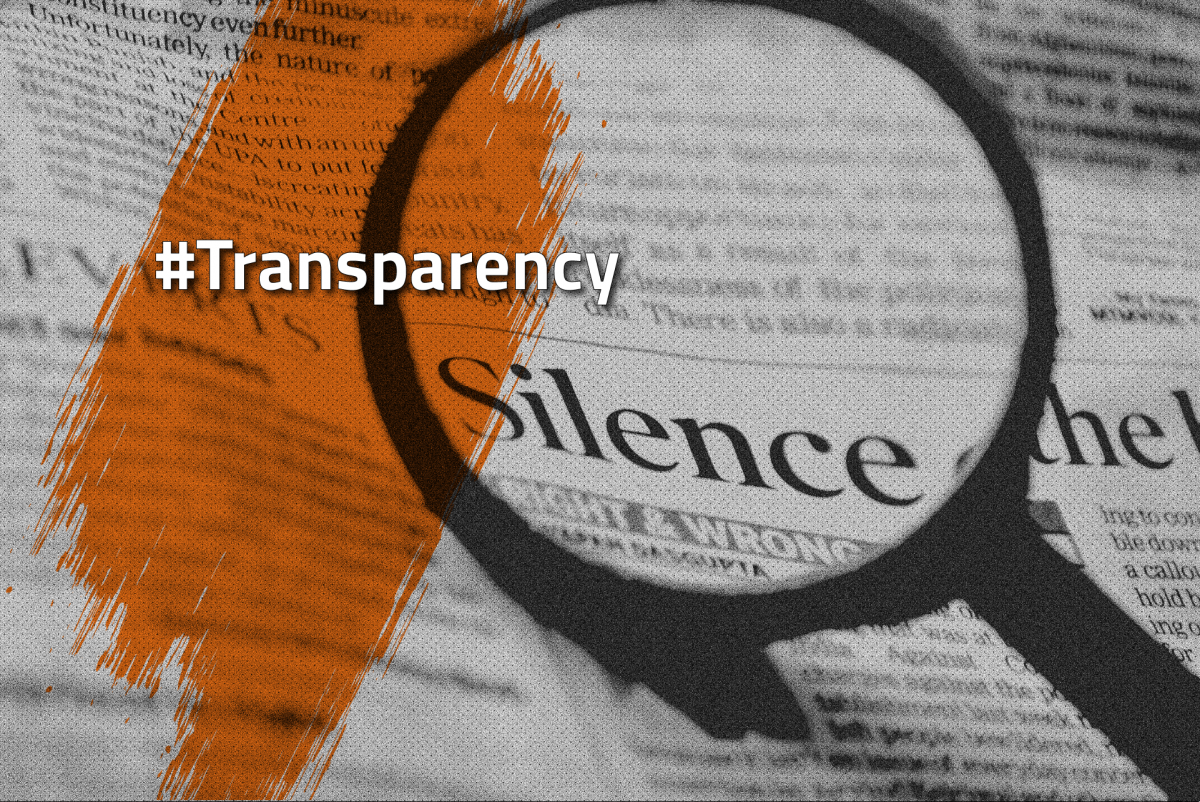 |
|
No evidence on what extent the AfDB is committed to Transparency and Openness |
|
The AfDB considers transparency and access to information as immanent values to its operations, which is clearly stated in its Disclosure and Access to Information (DAI) policy that is being reviewed. While it seems very ambitious, no information about the reviewing process is made available.
In May 2021, Arab Watch Coalition and various CSOs have been following the reviewing process and made use of all available channels to engage with the AfDB. In May 2021, a first letter was addressed to the bank flagging serious concerns over locked information about the process. In the Bank’s response, CSOs have been requested to complete a list of questions (discussion guide) in English, whereas the African continent is recognized with its rich linguistic diversity. Language barrier is a firm restriction to local communities and right-holders around Africa. A follow-up letter was sent in June 2021, urging the AfDB to take factual steps to take towards transparency and effective engagement. |
|
|
| |
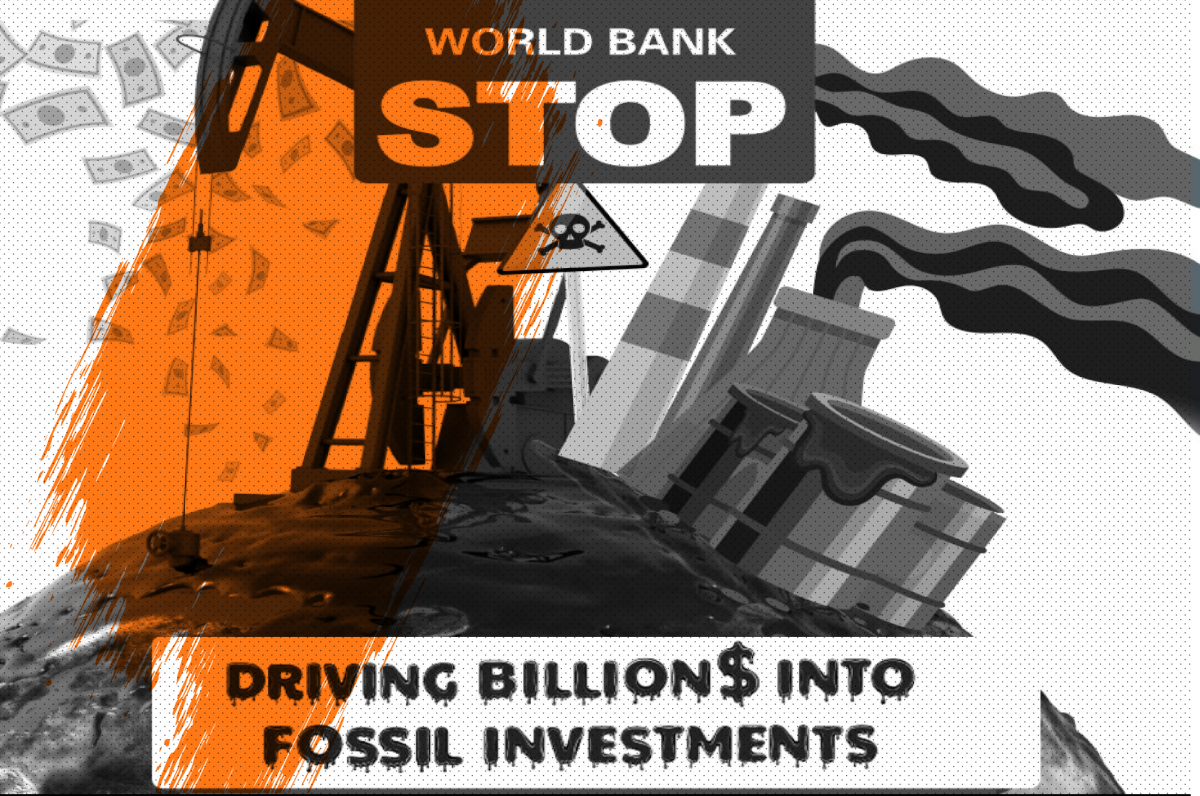 |
|
|
|
During the 2021 Annual Meeting of the World Bank, CSOs around the world called the bank for drastic commitments to climate and social justice during the World Bank Action Day 2021. The call focused on immediate ending to all assistance and funding for fossil fuels.
The burning of fossil fuels is the biggest contributor to the current climate crisis. No fossil fuel investments are needed to provide energy access to the all, because existing renewable energy technologies are already the best option and have already proven their efficiency. |
|
|
| |
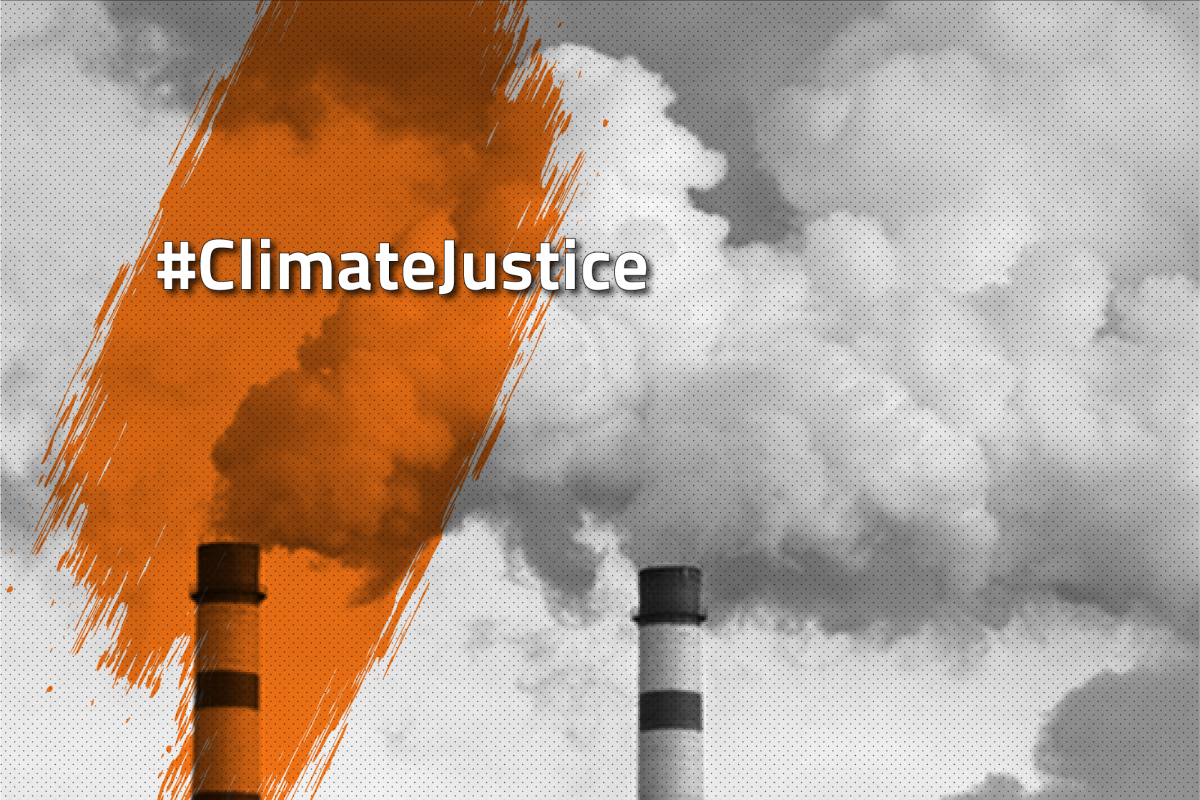 |
|
Gas is not clean, cheap or necessary ! |
|
Ahead of COP26, more than 200 CSOs called on governments and public finance institutions to stop locking in outdated infrastructure in countries that most need investments in clean energy. CSOs point out that clean alternatives such as wind and solar are already cost-competitive and respond effectively to clean cooking and electricity needs in the Global South. At the same time, they highlight, any new public financial support to oil and gas risks locking-in outdated energy infrastructure in the places that most critically need public investments in clean energy.
|
|
|
| |
|
To the G7 leaders: Stop Funding Fuel and instead, endorse climate justice! |
|
While the G7 governments are gathering for the G7 Summit to discuss how to build a “strong, sustainable, balanced and inclusive recovery”, civil society voiced their concerns over the actual climate emergency and its crucial impacts on people and their environment. Arab Watch Coalition among 353 organizations from 58 countries called on G7 leaders to take into account the contextual priorities, especially in the context of the COVID-19 crisis, by pursing debt cancellation to alleviate this burden on countries of the Global South; and paying fair share of climate finance to the Global South countries for climate adaptation among other demands. |
|
|
| |
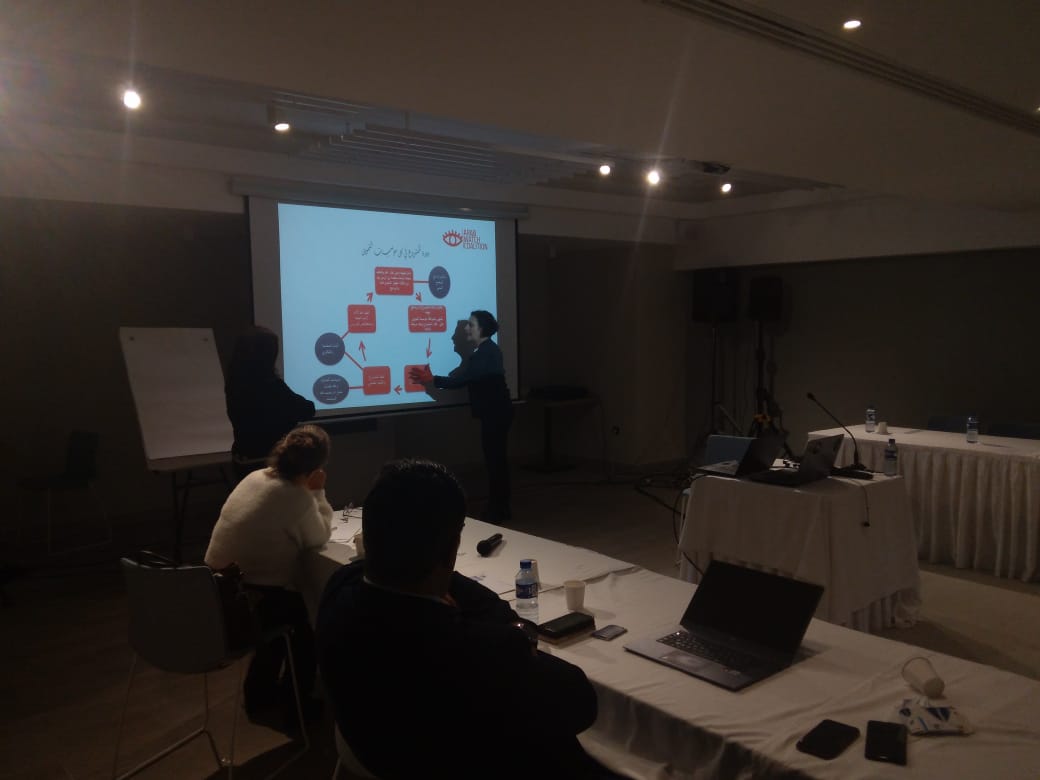 |
|
Towards Democratizing Development in Tunisia |
|
AWC held the Democratizing Development Workshop in Tunisia, on December 15, 2021. The workshop brought together AWC organizations members in Tunisia and other civil CSOs in Tunisia, along with representatives of the major International Financial Institutions (IFIs) operating in Tunisia, namely the World Bank, the International Monetary Fund (IMF) and the European Bank for Reconstruction and Development (EBRD). The discussion focused on the efficiency of IFIs policies in light of the current crisis in the country, the urgent situation is calling for more robust and effective engagement of Tunisian civil society to develop realistic and just plan.
In this direction, AWC plans to organize other open discussions with major IFIs operating in Tunisia to activate the role of civil society in providing propositions and participating in the country’s development programs. |
|
|
| |
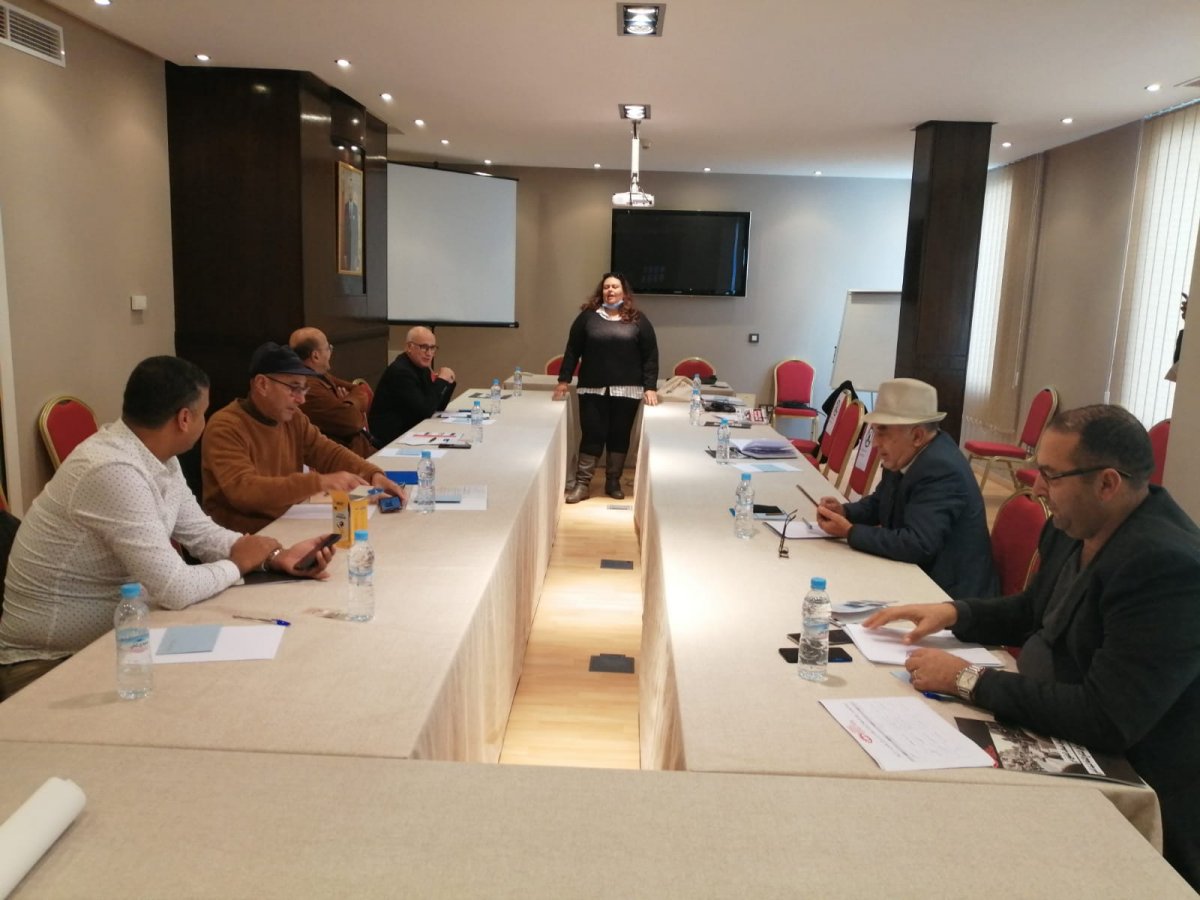 |
|
AWC members in Morocco: How to hold IFIs accountable |
|
AWC held a workshop on following mechanisms for major International Financial Institution (IFIs) on December 5, 2021. The workshop identified different needs expressed by its organization members from different regions in Morocco, to enhance their capabilities and activate their role within the coalition. Accordingly, AWC will work on empowering its members in the coming period by launching a series of training in several areas related to following up on the development programs of major IFIs. |
|
|
| |
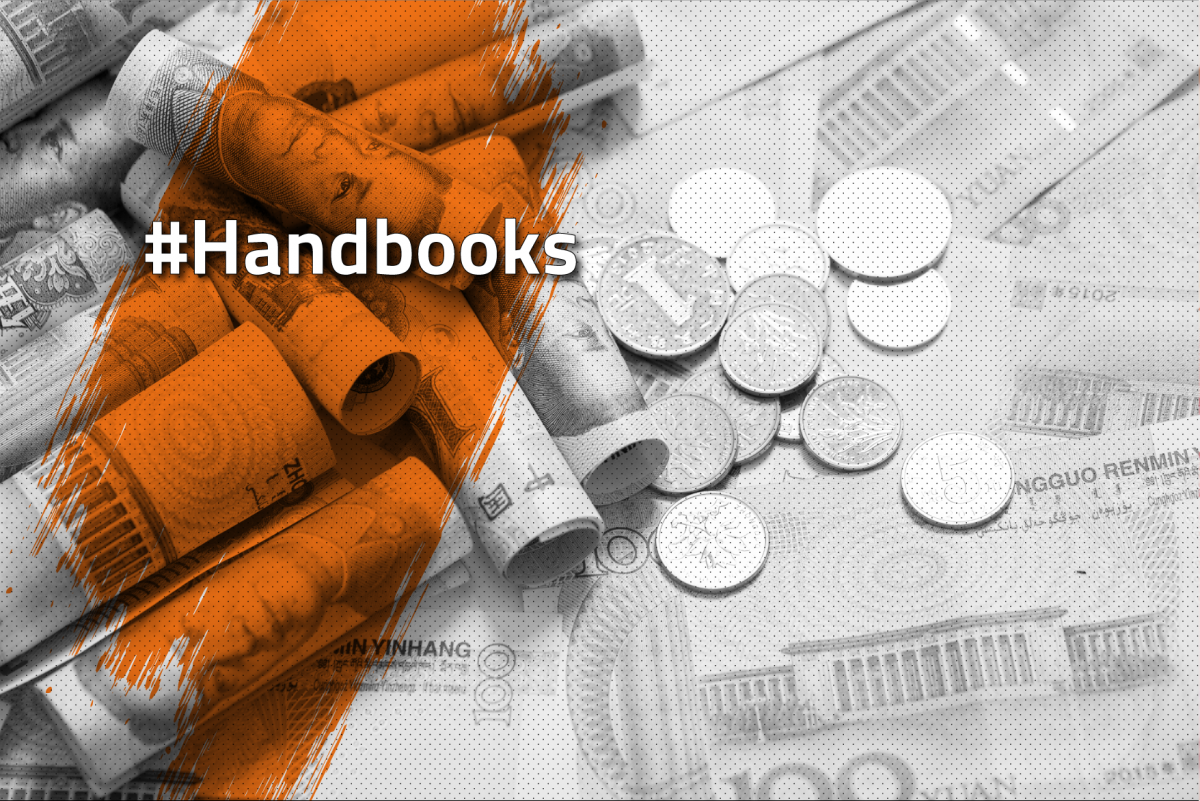 |
|
On Chinese lending institutions |
|
In 2013, China launched the Belt and Road Initiative (BRI). The initiative aimed at promoting connectivity between China and the rest of the world. Since the BRI, China has become one of the largest providers of development finance to countries of the Global South and became the largest official creditor, surpassing the World Bank and the IMF. This handbook produced by Urgewald and translated to Arabic by AWC gives an overview of Chinese institutions involved in development lending, including the Asian Infrastructure Investment Bank (AIIB). |
|
|
| |
|
In the coming period, AWC will launch two toolkis providing concise entry-points available for civil society engage with major IFIs operating in the MENA region:
- Entry points for Rights-holders in the World Bank’s Program-for-Results;
- International Financial Institutions and closing civic space.
|
| |
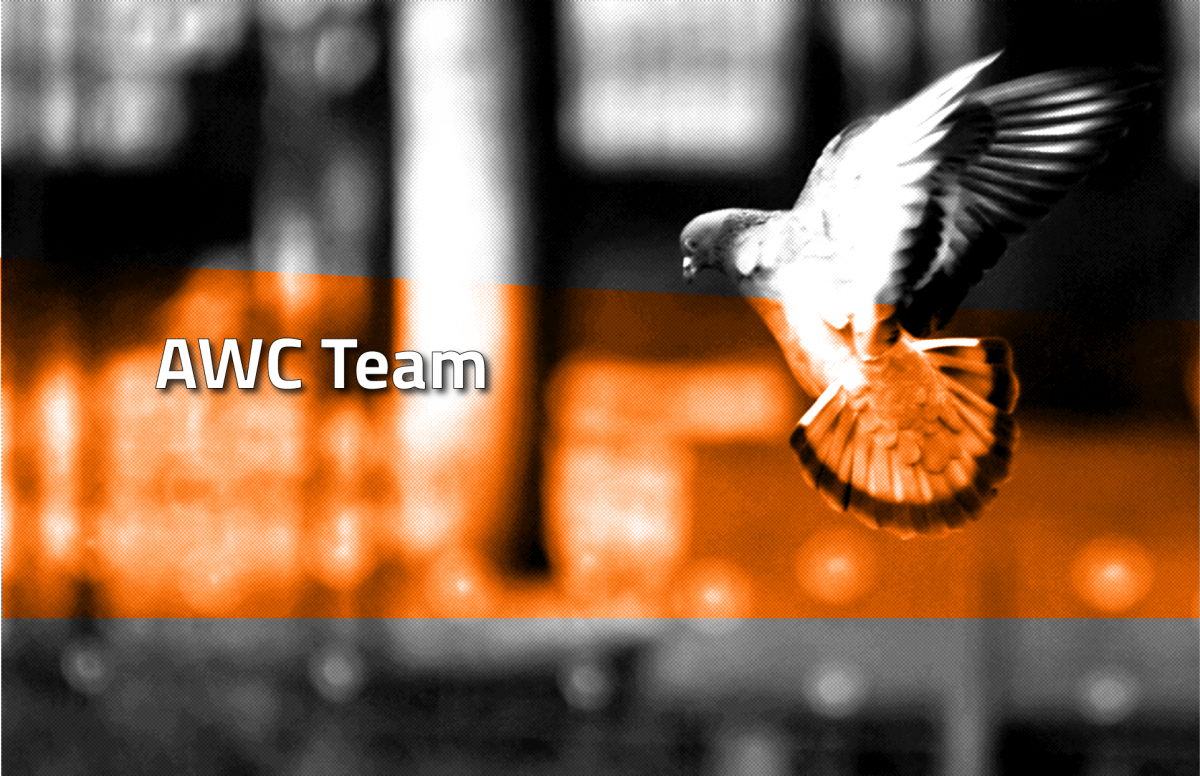 |
|
Welcome our new fellow colleague from Tunisia |
|
Emna joined Arab Watch Coalition efforts as program coordinator, based in Tunisia. |
|
|
| |
|
AWC is a growing organization, so please keep checking our website or subscribe to our Newsletter to receive our future job alerts.
AWC is an equal opportunity community, and encourages all qualified candidates to apply, regardless of race, gender, age, national origin, or sexual orientation. What we have in common is a shared vision for justice and human rights, and appreciation for diverse perspectives and collective wisdom. |
| |
|